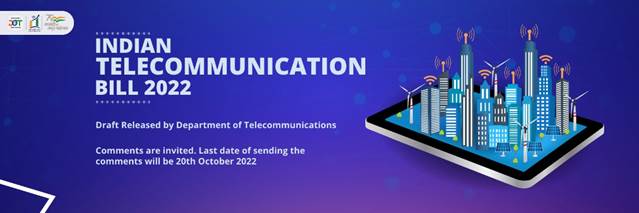Free Courses Sale ends Soon, Get It Now


Free Courses Sale ends Soon, Get It Now



Disclaimer: Copyright infringement not intended.
Context
Objective
Must Read: https://www.iasgyan.in/daily-current-affairs/indian-telecommunication-bill-2022
Background
Must Read: https://www.iasgyan.in/rstv/rstv-big-picture-challenges-in-telecom-sector
Provisions in the Bill
Clarity on Spectrum Assignment
Easing criminal penalties
Licensing Internet-based apps:
Wide expanse of shutdown and surveillance powers:
Coordination with other agencies:
Read about TRAI: https://www.iasgyan.in/daily-current-affairs/telecom-regulatory-structure-in-india
© 2024 iasgyan. All right reserved